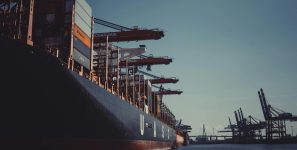Economic Recovery in Germany Marked with Fierce Rise in Inflation and a Stronger Green Transition
When examining a recovery for the German economy as the world rebounds from the events of 2020, it’s important to realize that many sectors will continue to struggle throughout this year. Although the response from the government was fast and strong at the start of the pandemic, three main challenges remain top of mind for Germany this year throughout the recovery process as businesses adapt to a withdrawal of government support and the economy reopens. Many of them took up debt last year and are more vulnerable than before the start of the pandemic. In addition, supply bottlenecks across several sectors will affect exports, and lastly, they will face rising inflation, which is forecast to rise to 4% later this year.
At the onset of the pandemic, the German government provided an immediate response to support businesses, which led to a sense of stability for most of 2020 and the beginning of 2021. Now, as vaccinations progress and cases go down, the government will evaluate its existing stimulus measures and begin to pull back on fiscal support. The German government’s generous support has already provided for approximately $400 billion in direct support (11% of GDP), higher than most countries in Western Europe. Much of what happens next will be decided during the September parliamentary elections but in the meantime, businesses are preparing to say goodbye to the generous financial aid provided.
One government support staying in place is the suspension of the Debt Brake Rule. This rule – which limits the federal deficit to 0.35% of economic output per year, by adding an investment rule to secure enough public money for climate protection, infrastructure, health care and education– has recently been officially suspended for 2022. Not only does this temporary suspension this rule ease the burden on German businesses and the wider economy, but helps transatlantic relations with the U.S., which has been running a trade deficit with Germany. The suspension of the rule has and will continue to help with the U. S’s high current account deficit with Germany, however, it is only predicted to be suspended through 2022.
Businesses globally are struggling with some of the worst supply chain issues to date. This is hitting German sectors particularly hard, as there is a national shortage of shipping containers and semiconductor chips. Supply chain issues are expected to be mainly short-term for the manufacturing industry, especially the automotive industry, and opportunity lies ahead in the medium-to-long term as demand grows for German exports in China and the U.S. The need to spend more on sustainability is the broad consensus among the German population and the main political parties and it is predicted the green party will be a strong contender in the September election. Demand for electric cars is growing, and the Germany car industry was able to play into this trend pretty well, helped by their strong financial position.
There are business opportunities in Germany for companies providing products or services for digitalization and sustainability, as Germany is striving to catch up in the digitalization process.
In general, the German economy is in good shape. While many businesses adapt as the stimulus pulls back, a few sectors will be struggling – such as textile and retail, where margins were already thin prior to the pandemic. The metal and steel industries are generally in good condition, with some upset from strong competition and small profit margins.
Keeping in mind that despite stimulus and support, businesses operating in Germany will have to protect their trade receivables in anticipation of the economic changes this year will bring.
________________________________________________________________
Theo Smid is a Senior Economist for Atradius based in the Netherlands.





Leave a Reply